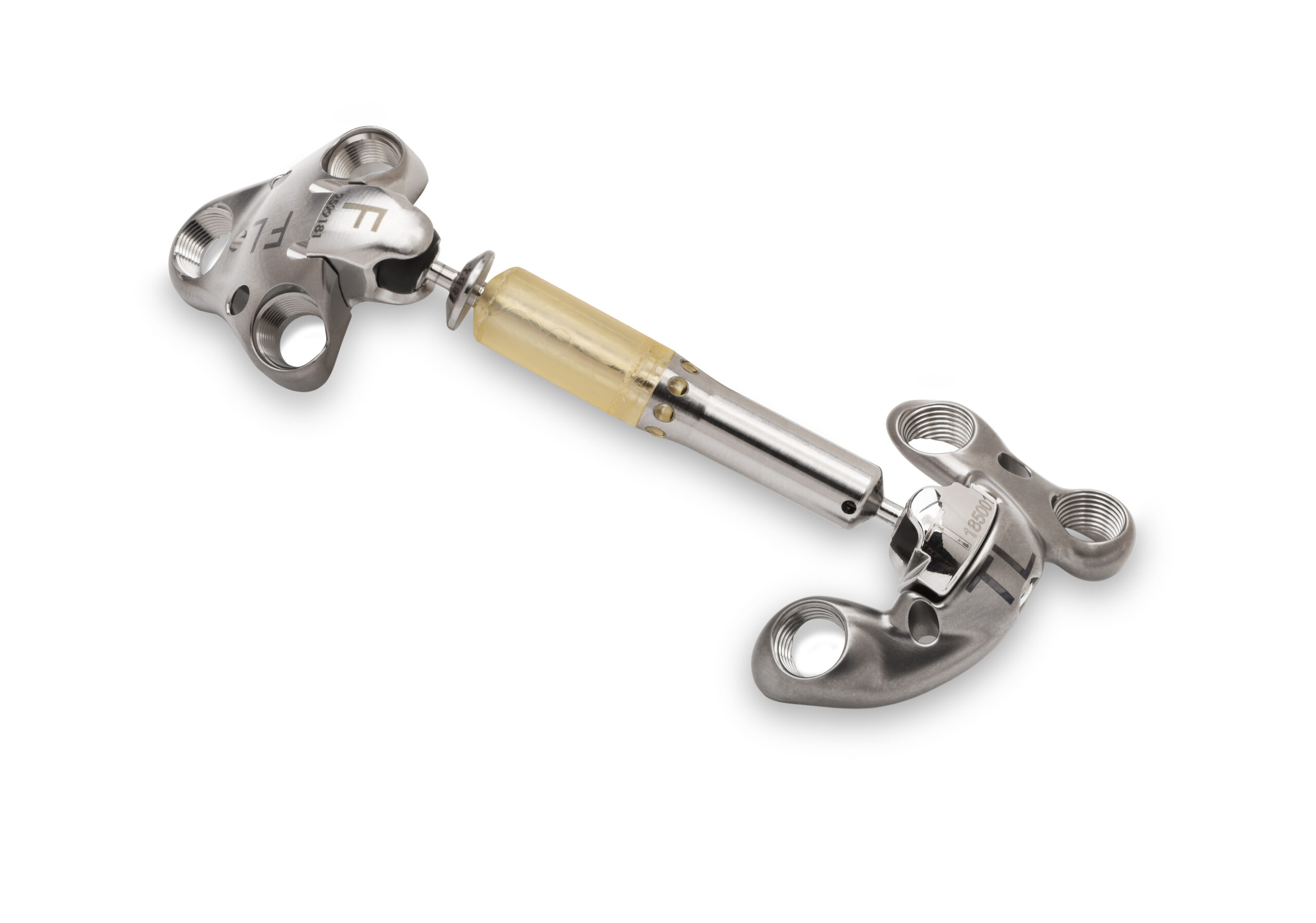

Moximed’s MISHA knee system
Medical device company Moximed has been tinkering for nearly 15 years on its signature product, an implantable shock absorber for the knee.
Backed by $40 million in new funding announced Tuesday, the Fremont, California-based company hopes to secure approval for the product by next year from the U.S. Food and Drug Administration, according to Moximed CEO and co-founder Anton Clifford.
“I believe so deeply in what we’re doing. Not only is it the right thing to do, but it’s providing tremendous benefit,” Clifford said in a phone interview. “I’m excited to try to get this to patients.”
Moximed’s device, called the MISHA Knee System, targets knee osteoarthritis patients between 33 to 64 who have exhausted traditional remedies, such as corticosteroid injections or weight loss, but are not ready for joint replacement. The device, which is implanted on an outpatient basis, fits under the skin but does not require cutting any bones or harvesting any ligament. Clifford touted the fact that it’s the first implantable device of its kind.
A study by Moximed to be published in September shows the system can reduce pain, improve function and potentially delay the need for total knee replacement in some patients. Clifford described the results as better than expected but declined to provide details ahead of publication.
The new funding, a Series C round led by Advent Life Sciences, will support the company as it works to secure FDA approval and build the infrastructure to market and sell its device. The latter will include a heavy dose of education for orthopedic surgeons and commercial payers, according to Clifford.
“I personally believe that education is a big piece of this,” Clifford said. “We’re bringing a first-of-its-kind implant to the orthopedic surgery community.”
He expects surgeons to embrace the device as a middle-ground alternative to joint replacement for younger, active patients. Clifford believes insurers can be persuaded since the device could lower costs of treating patients who are suffering from regular pain or limited in their abilities. He estimated about 9 million people suffer from symptoms of knee OA that would benefit from something short of joint replacement.
“We do recognize that there’s still going to be hesitation, so just the status quo will be the greatest competition that we have,” Clifford said. “That’s where education comes in.”
Moximed had developed a version of the device, called the KineSpring System a few years ago and was poised to pursue FDA approval for that device. However, early, positive results from MISHA convinced the company to focus on that version instead, Clifford said. “That is the product we want in the market.”
In addition to investment from Advent Life Sciences, the $40 million Series C round included support from New Enterprise Associates, Future Fund, Vertex Healthcare, Gilde Healthcare, GBS Venture Partners and Morgenthaler Ventures, with debt financing provided by Runway Growth Capital.
Investors pitched in $50 million during a series C round in 2017 and $33 million in 2015.
“Working people who have knee OA have been waiting for a solution that falls between conservative care and eventual joint replacement,” Dr. Shahzad Malik, a general partner with Advent Life Sciences, said in a statement. “Moximed has the potential to fill this gap in knee OA treatment with the MISHA Knee System, and we are excited to further support Moximed’s efforts to alter the treatment paradigm for millions of Americans.”
Photo: Moximed


















